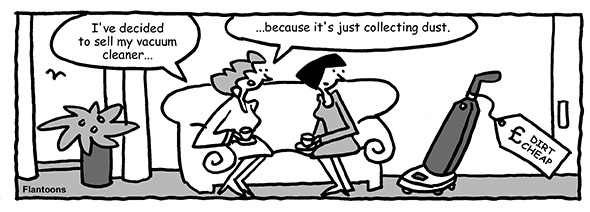
The better your vocabulary is the easier you can communicate ideas, thoughts, and emotions to those around you.
From the informal slang we use with friends, to the more formal English of business and academia, we need vocabulary to suit every occasion. A good vocabulary makes it easier for you to understand what you hear and read. A good vocabulary will also improve your fluency by reducing your thinking time.
The harder we work to learn new words, the simpler our lives become!
Read this news article and pay particular attention to the orange words.
Ten years ago the European Space Agency launched a robot probe called Philae. Its mission was to travel six billion kilometres and land on a four kilometre wide comet that travels 130,000 kilometres an hour.
Amazingly, the Philae probe successfully landed on the surface of the comet seven hours after descending from its mother ship Rosetta.
Take a look at these two questions:
How much milk do you drink?
How many cartons of milk do buy a week?
Why do we use much in the first qustion and many in the second?
Milk is an uncountable (non-countable) noun like water, snow and rice.
Cartons of milk are countable so we use many. Other countable nouns include people, houses and pens.
Read this short review of the movie Interstellar. Pay particular attention to the words in bold:
Inspired by Stanley Kubrick's 2001: A Space Odyssey, Interstellar is a new science fiction movie about a team of space travellers who journey through a wormhole in search of a new habitable planet.
Cut down means to use less or do less of something.
You should cut down on the amount of cigarettes you smoke.
I've cut down on how much coffee I drink. I used to drink five cups a day, now I drink two.
We're cutting down on the amount of paper we use in the office.
To completely stop eating something, usually for health reasons.
My doctor recommended I cut out salt from my diet.
A new study has found that it is better for you to work 'normal' fixed hours, like a 9-to-5 job, than shift work, where your hours change from day to day or week to week.
The study published in the journal, 'Occupational and Environmental Medicine' found that long-term shift work can age your brain, cause memory loss, reduce processing speed and result in a decline in overall brain function.
Read through this short story. Which words do you think are missing?
Jennifer loved Halloween when she was young. One year she and her friends put on their Halloween costumes and went _1_ for sweets around the neighbourhood. That year Jennifer dressed up as a _2_ with a big black pointy hat, broomstick and long black dress.

This cartoon is based on the idiom collecting dust.
If something is collecting (or gathering) dust, it isn't being used any more. Dust is the fine dirt that builds up on surfaces that have not recently been cleaned. Objects become dusty if they are not used for a long time.
Examples:
What are the six missing words in this text?
_1_ English journalist Ann Morgan realised that most of the books she read were by British and American authors, she decided to set herself a challenge: she would _2_ to read a book from every country in the world in English.
After creating a blog and promoting her mission on social media, she asked _3_ from around the world to recommend the books she should read.
When you imagine something that is not real, it is all in your head.
They were not gossiping about you, it’s all in your head.
When you are ready and eager to listen, you are all ears.
Tell me what she said, I’m all ears.
When something is unusual for other people but not unusual for you, it’s all in a day’s work.